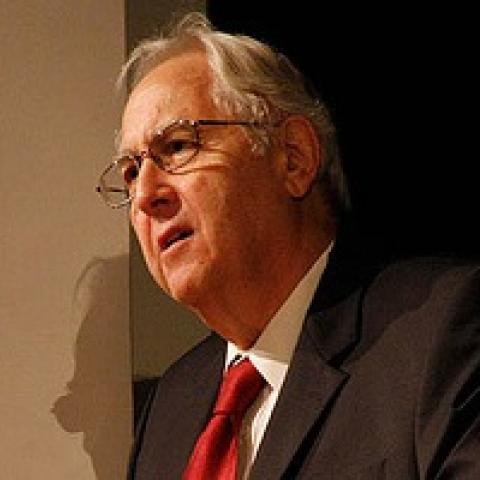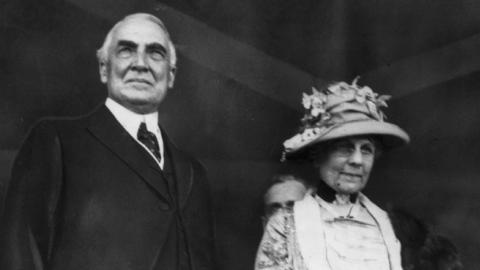The last year or so has not been kind to Warren G. Harding, who was the 29th president, from 1921 to 1923. Last summer the Library of Congress released his steamy love letters to his neighbor Carrie Phillips. More recently, some of Harding’s descendants had their DNA tested, to see if there was any truth to the claim of Nan Britton, the author of the tell-all book “The President’s Daughter,” that she had borne Harding’s child. They released the results last month. It turns out she had.
Harding’s reputation wasn’t doing well to begin with. From the first poll of historians ranking the presidents, conducted in 1948 by Arthur M. Schlesinger Sr., to the most recent one in 2015, Harding has always come in either at the very bottom of the list, or one above James Buchanan, thanks in large part to the scandals that rocked his administration, which tarnished his reputation even though he had nothing to do with them.
But the low regard for Harding today stands in sharp contrast to how the country viewed him when he was president. He won the 1920 election in a landslide, receiving 60 percent of the popular vote, one of the highest totals ever obtained by any president. He won 37 of the 48 states, with 404 Electoral College votes out of 531. Republicans won on his coattails, gaining a 22-seat majority in the Senate and an unprecedented 168-seat majority in the House.
Harding’s victory was a rejection of the Democrats and President Woodrow Wilson, who had promised, then failed, to keep America out of World War I. During the war, Wilson had greatly expanded the federal government, including intrusive, powerful new agencies like the War Industries Board and a government takeover of the railroads.To pay for it, the Federal Reserve inflated the money supply, causing the nation’s debt to grow from $1 billion in 1914 to $24 billion in 1920. To put a lid on dissent, Wilson introduced the nation’s first “red scare,” when many antiwar dissenters as well as socialists, anarchists and union members were jailed. A Southerner, Wilson also introduced segregation into the federal government.
By the time Harding was inaugurated, in March 1921, the nation was in the doldrums, experiencing a postwar depression. In 1918, four million doughboys came home from the war and many could not find jobs. Unemployment hit African-American soldiers especially hard, and race riots broke out in the Midwest industrial belt.
Harding, much like Ronald Reagan in 1980, brought an upbeat message to Americans. The dour Wilson had ended the public’s access to the White House. Harding opened the doors. Before the arrival of the Hardings, wrote The New Republic’s Edward Lowry, “The social-political atmosphere of Washington” was “one of a bleak and chill austerity.” Now, “the sunny side is up … The news has gone all over the country that the White House is open again.”
Thanks to this openness, Harding — a former newspaper editor and publisher — had perhaps the best relationship with the press of any president before or since, and he inspired many newsmen to communicate his message. While Wilson had discontinued his news conferences, the accessible Harding held them twice a week, making him the first president to hold news conferences on a regular basis.
Harding immediately stressed his commitment to equal opportunity for all Americans, men and women, “whatever color, blood or creed.” A fiscal conservative, he pledged to right the nation’s finances and resuscitate the economy by lowering taxes, reducing the debt, balancing the budget and making government smaller and more efficient.
Harding appointed the businessman Charles G. Dawes, who had been President William McKinley’s comptroller of the currency, to set up a new Budget Bureau. At the time each federal department submitted its own budget, without any coordination. Dawes worked magic: By the time he left office in June 1922, the federal budget had been balanced, revenues exceeded expenditures and the public debt had been reduced. Spending had been $6.3 billion in 1920; by 1922 it had dropped to $3.3 billion.
Most telling was Harding’s veto of the popular so-called bonus bill, which would have given veterans an expensive bonus paid over time through deficit spending. The country, he told Congress in a speech, simply did not have the money. He argued it would also set a precedent to use public funds to pay for anything if it was “publicly appealing.”
Oddly, one reason for Harding’s continued low reputation was a racist smear during the 1920 campaign, in which opponents charged that he had black ancestry — a fact that the recent DNA test disproved. Though such a heritage doesn’t matter to us today, at the time it demeaned Harding in the minds of millions of Americans. More telling, though, is that while Harding denied the charge, he also told a reporter that for all he knew “one of my ancestors may have jumped the fence.”
And indeed, Harding was a racially enlightened president, especially for the time. During the campaign and his presidency, he supported an anti-lynching bill proposed by Republicans. (It passed in the House, but the Southern Democrats in the Senate successfully filibustered it.)
In October 1921, Harding traveled to Birmingham, Ala., where, in a powerful speech to a mixed-race (though segregated) audience, he demanded justice for African-Americans. In the first speech in the South by a sitting president on race, he argued for full economic and political rights for all African-Americans. Pat Harrison, a Democratic senator from Mississippi, was aghast. If Harding’s views “were carried to its ultimate conclusion,” he said, “that means that the black man can strive to become president of the United States.”
The African-American community saw things differently. America’s best-known black intellectual, W.E.B. Du Bois, wrote in the N.A.A.C.P. magazine Crisis: “Today President Harding’s speech, like sudden thunder in blue skies, ends the hiding and drives us all into the clear light of truth.”
Harding also stood out on civil liberties. On his first Christmas in office, Harding pardoned the Socialist Party leader Eugene V. Debs, who had been imprisoned under the Sedition Act under Wilson, and invited him to come straight to Washington so he could receive him in the White House. As Harding told a friend, he regularly heard “men in Congress say things worse than the utterances” for which Debs was convicted.
Over the opposition of both his wife and his attorney general, Harding said that Debs “had never been guilty of any overt act; that he never countenanced destruction of government by force, and that probably I could persuade him to become a factor in contributing to tranquillity throughout the land.” Later, Harding commuted the sentences of the remaining political prisoners still incarcerated.
When Harding suddenly died of a heart attack in San Francisco on Aug. 2, 1923, at the age of 57, the country was shaken. As the train bearing his body made its way back to Washington, an estimated nine million people lined the railroad tracks to silently pay their respects.
We’ll never know what Harding would have achieved if he had finished out his term, or if that would have made a difference with how history has treated him. But he deserves better than he has received.





















